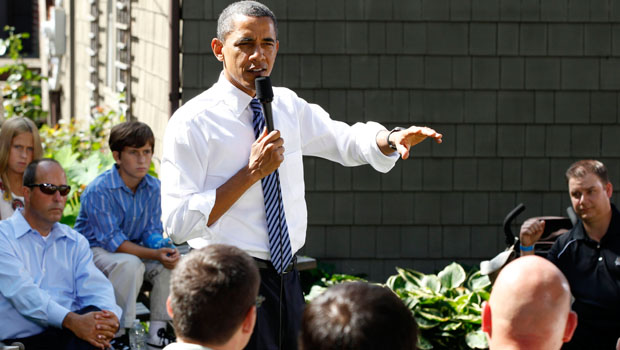Obama acknowledged the deficit is worrying Americans and said cutting it would raise the public's confidence.
"People, consumers, are not going to start spending until they feel a little more confident that the economy's getting stronger," Obama told a group of about 30 voters at a home in Columbus.
The president is on a three-day swing through important electoral states to tout his economic policies and raise millions of dollars for Democratic candidates campaigning for the Nov. 2 elections.
The US budget deficit is expected to reach $1.47 trillion for the 2010 fiscal year. Republicans have balked at plans to stimulate the economy with additional spending, citing the record deficit. Democrats in turn want to eliminate tax cuts for the richest Americans to address the same issue.
US growth slowed in the second quarter, sparking fears the country might suffer a double-dip recession after climbing out of the worst economic slump since the Great Depression. Obama said housing oversupply was obstructing the recovery.
"The housing market is still a big drag on the economy as a whole," Obama said. "It is going to take some time for us to absorb this inventory, that was really too high."
Sharply rising prices encouraged far more homes to be built than were needed and overhang of inventory will take time to mop up.
"We were building 2 million homes a year when only 1.4 (million) were being absorbed," he said.
The trip is Obama's ninth to Ohio — always an important swing state in US elections — since becoming president.
Obama took questions from a handful of voters and most asked about pocketbook issues, including pension plans, Social Security and the cost of healthcare and childcare.
The prospects for Obama's fellow Democrats to hold their majorities in the US House of Representatives and Senate in November are complicated by fears that the country may be on the brink of a double-dip recession, with employment at 9.5 percent.
The president's approval ratings, which have fallen into the mid- to lower 40 percent range, also are a difficulty. Congress' ratings are even worse, hovering at about 20 percent.
(Editing by Bill Trott)










